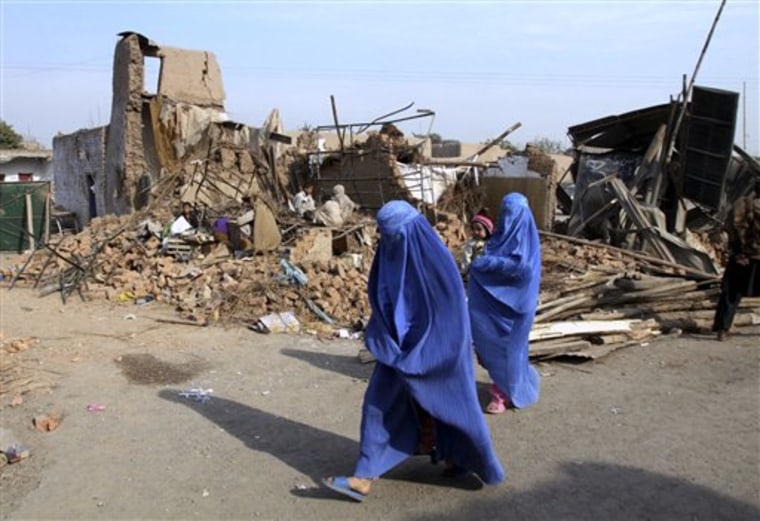Pakistan reopened the main supply route for U.S. and NATO troops in Afghanistan on Friday after blocking it for three days during an operation against militants blamed for repeated attacks on convoys in the Khyber Pass, an official said.
Authorities say the operation was a success, but a similar offensive in June failed to curtail attacks and was followed by a controversial peace deal with tribal elders in the northwest Khyber region that U.S. officials say allowed militants to regroup.
The U.S. plans to deploy up to 30,000 additional troops to landlocked Afghanistan next year, further increasing the importance of secure supply routes through Pakistan, which deliver up to 75 percent of the fuel, food and other goods used by Western forces.
Militants have stepped up attacks against convoys passing through Khyber in recent months and have also ransacked terminals in the nearby city of Peshawar holding supplies including Humvees intended for the Afghan army.
American officials say the attacks have not affected their ability to operate in Afghanistan but have acknowledged they are looking for ways to improve security along the route and are investigating alternative ways to deliver supplies. They have praised the Pakistani operation, which started Tuesday and used artillery and helicopter gunships to destroy suspected militant hide-outs.
The top administration official in Khyber, Tariq Hayat Khan, said Friday that the operation would continue, but not close enough to the road through the Khyber Pass to disrupt traffic. Khan displayed a large cache of weapons seized during the operation, including heavy machine guns and rocket launchers, and said 43 suspected militants had been arrested.
U.S. strikes anger locals
The U.S. has also attempted to disrupt al-Qaida and Taliban militants on the Afghan border by firing missiles from unmanned aircraft.
A suspected U.S. missile strike killed three militants and wounded two others in the South Waziristan tribal area Friday, the second in as many days in the lawless region, said two intelligence officials, who spoke on condition of anonymity because they were not authorized to talk to the media.
Villager Yar Mohammed said the missile hit an abandoned school in the village of Medan.
The strikes have angered local residents and the Pakistani government, which says they are a violation of the country's sovereignty. But the U.S. has continued the practice in an attempt to stop the militants from staging cross-border attacks against Western forces in Afghanistan.
Washington usually does not confirm such strikes, and Pakistani military officials were not immediately available for comment on Friday's attack.
Militants in Pakistan's tribal areas have also tried to enforce their strict interpretation of Islam on local residents. Militants in North Waziristan warned Friday that all co-educational schools in the region must close by Jan. 5 or they "will be responsible for their actions." Clerics read out the warning at mosques during Friday prayers in the region's main town of Miran Shah.
Many Islamic fundamentalists believe their faith calls for strict segregation of the sexes, and some disapprove of any female education. Suspected militants have attacked several girls' schools in Pakistan's northwest Swat Valley in recent months.
Miran Shah's two co-educational schools are believed to be the only ones in North Waziristan.
Anayatullah Khan, whose 7-year-old daughter attends one of the coed schools, said he would transfer her to a girls' school even though she would prefer to stay.
"If we do not comply, it can be dangerous for us," he said.
